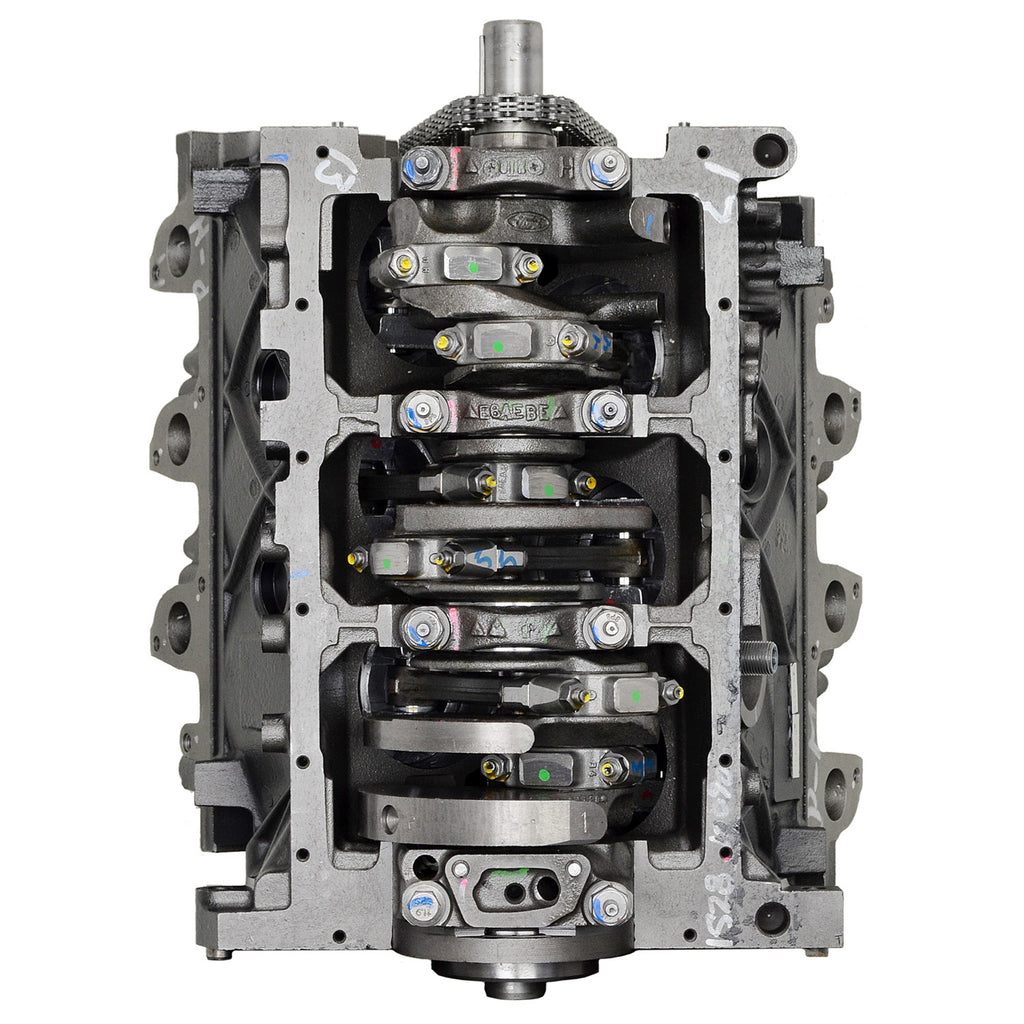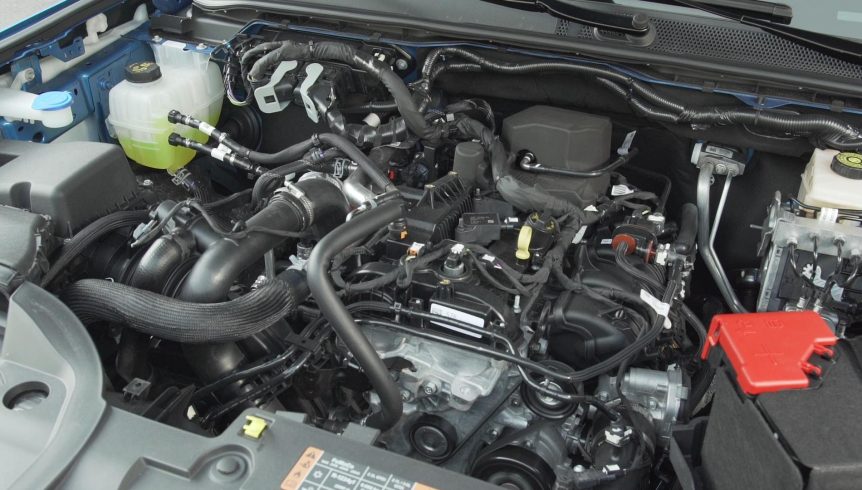How the 2.2 Ford Ranger Engine Delivers Power and Efficiency for Your Truck
How the 2.2 Ford Ranger Engine Delivers Power and Efficiency for Your Truck
Blog Article
Just How to Select the Right Vehicle Engine for Maximum Performance and Effectiveness
Selecting the appropriate auto engine to achieve an optimum balance of efficiency and performance necessitates a nuanced understanding of numerous engine kinds and their certain characteristics. Factors such as engine displacement, the number of cyndrical tubes, and fuel type play an essential duty in establishing both power result and fuel economic climate. While some may lean in the direction of performance-driven alternatives, others may focus on sustainability and efficiency. Comprehending these dynamics is vital; however, the difficulty depends on straightening these qualities with your specific driving preferences and requirements. What considerations will eventually assist your decision?
Recognizing Engine Types
When choosing a vehicle, among the most essential parts to think about is the engine kind, which serves as the heart of the vehicle. The engine kind substantially influences the auto's total efficiency, long life, and suitability for your driving demands. There are mainly three engine types to take into consideration: interior combustion engines (ICE), hybrid engines, and electrical engines.
Inner combustion engines continue to be the most common, operating gas or diesel. They are known for their power and velocity, making them ideal for performance-oriented lorries. However, they may drop short in fuel performance and environmental impact.
Crossbreed engines integrate an interior burning engine with an electrical motor, offering a balance in between performance and fuel economy. They are significantly prominent for chauffeurs seeking decreased exhausts while still supplying appropriate power.
Electric engines, powered completely by batteries, are obtaining traction because of their ecological advantages and lower running costs. They provide immediate torque and a peaceful driving experience, making them optimal for urban travelling.

Performance vs. Efficiency
Choosing the appropriate engine kind involves weighing the trade-offs between efficiency and effectiveness. Efficiency typically refers to how well an engine can provide power and velocity, which is usually connected with larger displacement engines or those with turbocharging abilities. These engines normally supply exciting driving experiences and fast response times, making them prominent amongst lovers.
On the various other hand, performance concentrates on gas economy and lower emissions. Smaller sized engines, particularly those geared up with advanced innovations such as straight gas injection and variable valve timing, have a tendency to supply better miles per gallon and reduced carbon footprints. While these engines may sacrifice some power compared to their larger counterparts, they commonly stand out in day-to-day driving situations where high performance is not constantly required.
Eventually, the option between efficiency and efficiency hinges on specific concerns. A driver who values perky driving might prioritize a high-performance engine, while a person looking for affordable commuting may lean towards an efficient option. Understanding these trade-offs is essential for making a notified decision that aligns with your driving demands and way of living, making certain that the picked engine type enhances your assumptions for both performance and performance.
Secret Specifications to Consider
Understanding key specifications is essential for making an informed decision about the appropriate cars and truck engine. When choosing an engine, numerous important variables require factor to consider to ensure ideal efficiency and effectiveness.
Firstly, engine displacement, determined in litres or cubic centimeters, is a crucial specification. It suggests the total volume of the engine's cylinders and normally correlates with power result; bigger displacements often produce even more power. Next, the number of cylinders plays a considerable duty in performance characteristics. Engines with even more cylinders can supply smoother operation and higher power, while smaller sized arrangements can enhance fuel performance.
In addition, the engine's configuration, whether inline, V-type, or rotating, affects the total design and performance characteristics of the car - 2.2 ford ranger engine. Turbocharging and supercharging modern technologies should additionally be examined; these increase an engine's power output without substantially raising its size, therefore boosting effectiveness
Fuel type is one more essential factor to consider, as it impacts both efficiency and prices. The engine's compression ratio influences effectiveness and power shipment; a higher ratio typically leads to better performance, yet may call for premium fuel. By carefully examining these specs, you can pick an engine that straightens with your efficiency and effectiveness objectives.
Examining Driving Requirements
Reviewing driving needs is a basic step in establishing the appropriate auto engine for your lifestyle and use patterns. If your driving primarily is composed of short commutes in metropolitan environments, this page a smaller sized engine with excellent gas performance may be enough.
Think about the terrain you typically navigate. Hilly or rugged landscapes might demand an engine with greater torque for much better performance. Additionally, review traveler and cargo needs; larger families or those that move products may take advantage of automobiles with boosted power and capability.
It's likewise vital to examine your gas preferences. Diesel engines commonly supply remarkable torque and gas economic situation for much heavier cars, while fuel engines might provide a smoother and quieter trip. Variable in ecological factors to consider, as crossbreed or electrical engines can give a much more lasting option without compromising efficiency. By thoroughly understanding your driving needs, you can make an educated choice that lines up with both performance expectations and efficiency goals.
Future Patterns in Engine Modern Technology
As the automobile market proceeds to develop, advancements in engine modern technology are leading the method for extra lasting and efficient driving experiences. One considerable fad is the change toward electrification, with crossbreed and totally electric powertrains obtaining importance. Automakers are spending heavily in battery technology to enhance energy thickness and lower billing times, eventually enhancing the functionality of electric vehicles (EVs)
An additional arising fad is the development of hydrogen fuel cell engines. 2.2 ford ranger engine. These systems offer the capacity for zero-emission driving while providing refueling times comparable to conventional fuel engines. Additionally, improvements in burning innovation, such as variable compression ratios and improved turbocharging, are enhancing typical interior combustion Related Site engines for better effectiveness and performance
Digital visit the website integration is additionally a critical facet of future engine technology. The execution of expert system and artificial intelligence allows for real-time data evaluation, making it possible for smarter engine management systems that adapt to driving conditions and boost fuel performance.

Conclusion
To conclude, choosing the proper automobile engine demands an extensive analysis of various aspects, including engine kind, efficiency requirements, and performance goals. By recognizing the distinctions in between various engine types and considering key specs, individuals can align their choices with details driving needs. As advancements in engine modern technology proceed to emerge, staying notified regarding future fads will certainly additionally boost decision-making, inevitably leading to a vehicle that stabilizes efficiency and gas performance properly.
Picking the suitable car engine to attain an optimum equilibrium of performance and performance demands a nuanced understanding of numerous engine types and their details features. There are mainly 3 engine types to think about: internal combustion engines (ICE), hybrid engines, and electrical engines.
Efficiency generally refers to exactly how well an engine can supply power and velocity, which is usually associated with larger displacement engines or those with turbocharging capacities. Diesel engines frequently provide superior torque and gas economic climate for heavier vehicles, while fuel engines may supply a smoother and quieter ride.In final thought, selecting the appropriate automobile engine necessitates a comprehensive assessment of various elements, consisting of engine type, performance needs, and performance objectives.
Report this page